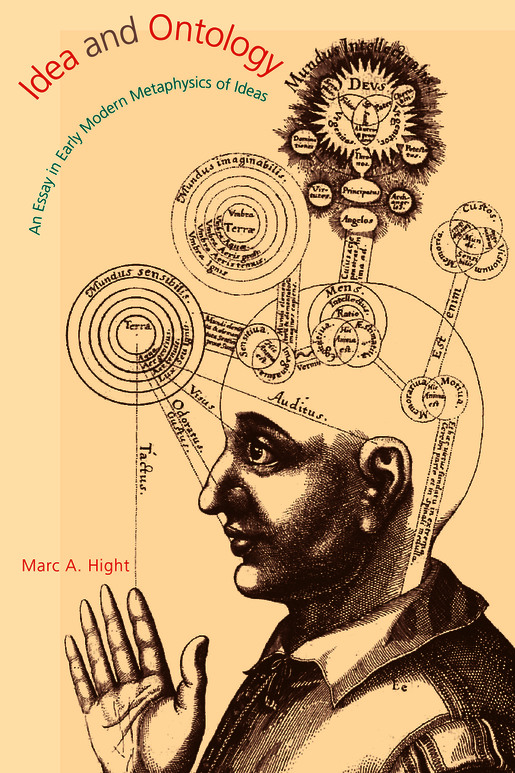Hight’s "Idea and Ontology": a fairy tale

In
het verlengde van de vorige twee blog, wil ik graag op deze ‘studie’ wijzen die
naar eigen zeggen van de auteur eigenlijk een sprookje is. Die aap komt uit de
mouw als hij moet uitleggen, waarom hij geen hoofdstuk aan Spinoza heeft
gewijd.
Marc
A. Hight, Idea and Ontology. An Essay in
Early Modern Metaphysics of Ideas. Penn State University Press,
2008 [books.google]
De status van ideeën zouden in de vroegmoderne filosofie steeds verder verwijderd raken van de ontologie en tenslotte zouden bij Berkeley ideeën volstrekt elke ontische status kwijt zijn. De volgende fase is dan dat metafysica geheel in het verdomhoekje komt en epistemologie het enig belangrijke lijkt te worden. Dit is het dominante verhaal waar Hight hier een ander verhaal tegenover wil zetten. Hij begint met een hoofdstuk over de traditionele ontologie, heeft vervolgens hoofdstukken over Descartes, de cartesianen Malebranche en Arnauld, en vervolgens Locke, Leibniz en Berkeley. Niet een over Spinoza! In de inleiding licht hij toe, waarom hij geen hoofdstuk aan Spinoza heeft gewijd, met deze woorden:
“I have elected not to
include a chapter on Spinoza, primarily because he is not considered a vital
figure in our fairy tale. Spinoza's striking metaphysics dominates the rest of
his philosophy and leaves little doubt that ideas—whatever their roles—are
ultimately grounded in the ontology of substance and mode. In Ethics II-D3
Spinoza tells us, "By idea I understand a concept of the Mind that the
Mind forms because it is a thinking thing." In the explanation he goes on
to point out that all ideas involve mental activity (which is why he says
"concept" instead of "perception"). Spinoza also
distinguishes the idea from its object (ideatum), preserving the Cartesian
distinction between objective and formal reality. Ideas are a particular kind
of mode of the one substance, God. The distinction between an idea and its
object (and other uses to which Spinoza puts the term "object") makes
the analysis cloudy and difficult, but for my purposes here the core claim is
not controversial: Spinoza does not contribute to the early modern tale nor am
I aware of anyone who has attempted to make a case for his inclusion in it.”
Je weet niet wat je
leest. Juist bij Spinoza hebben ideeën een ontologische status. Het komt
Hight gewoon niet uit hier aandacht aan te besteden, omdat het niet in z'n
sprookje past! En hij kan er mee wegkomen. Reviewer op NDPR, Monte Cook
(University of Oklahoma) zegt er helemaal niets over.

